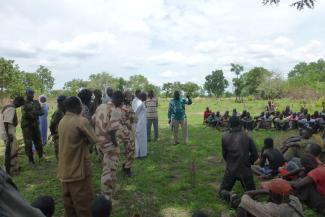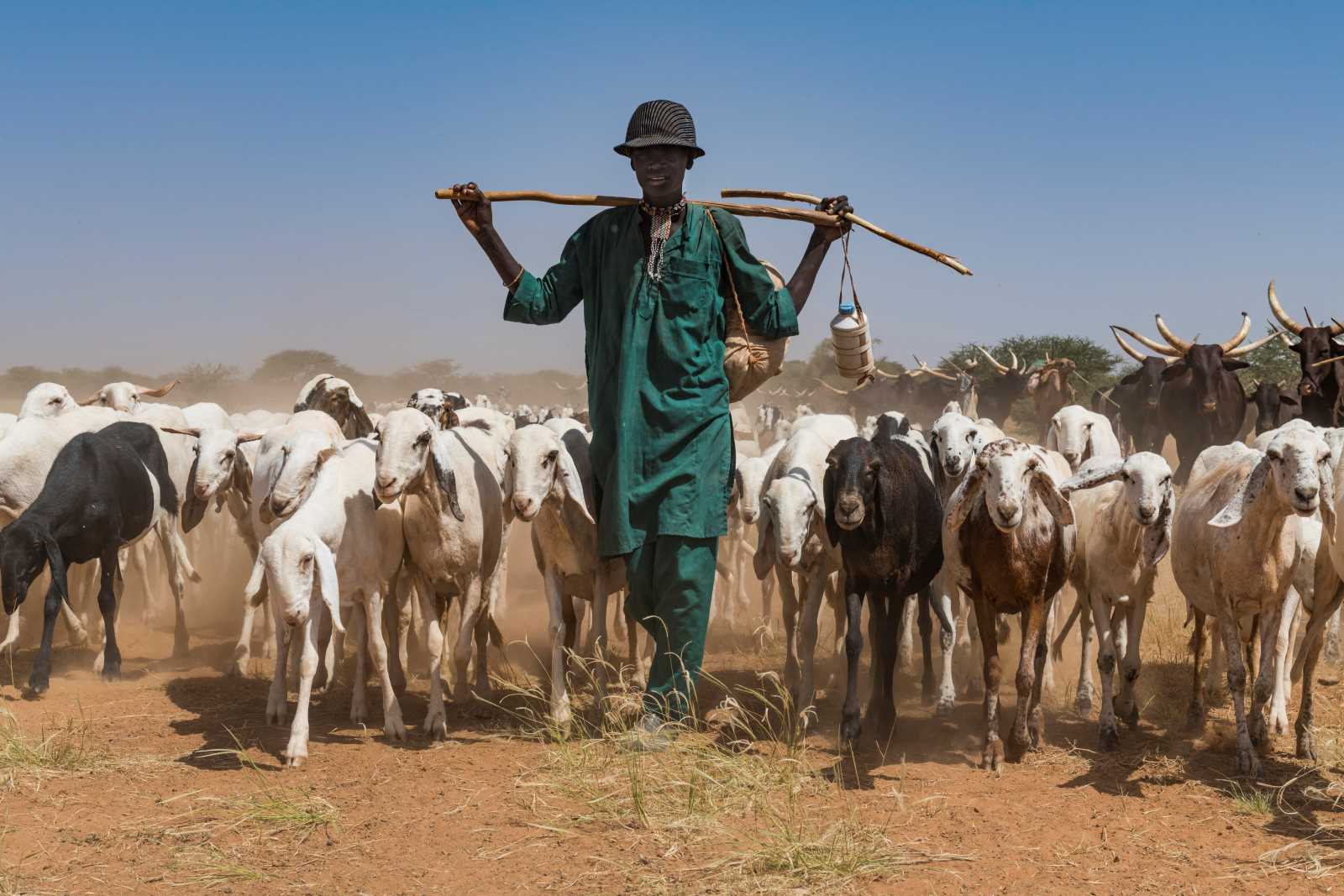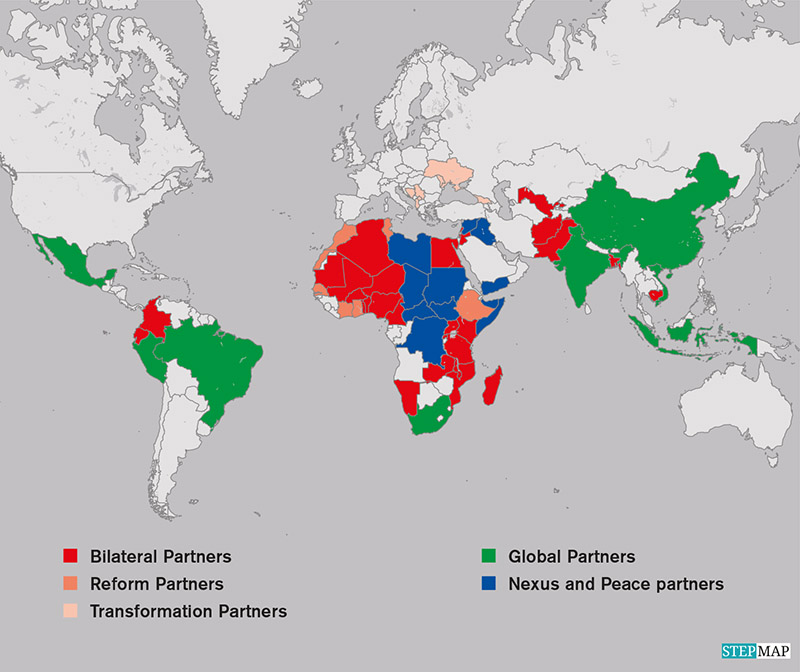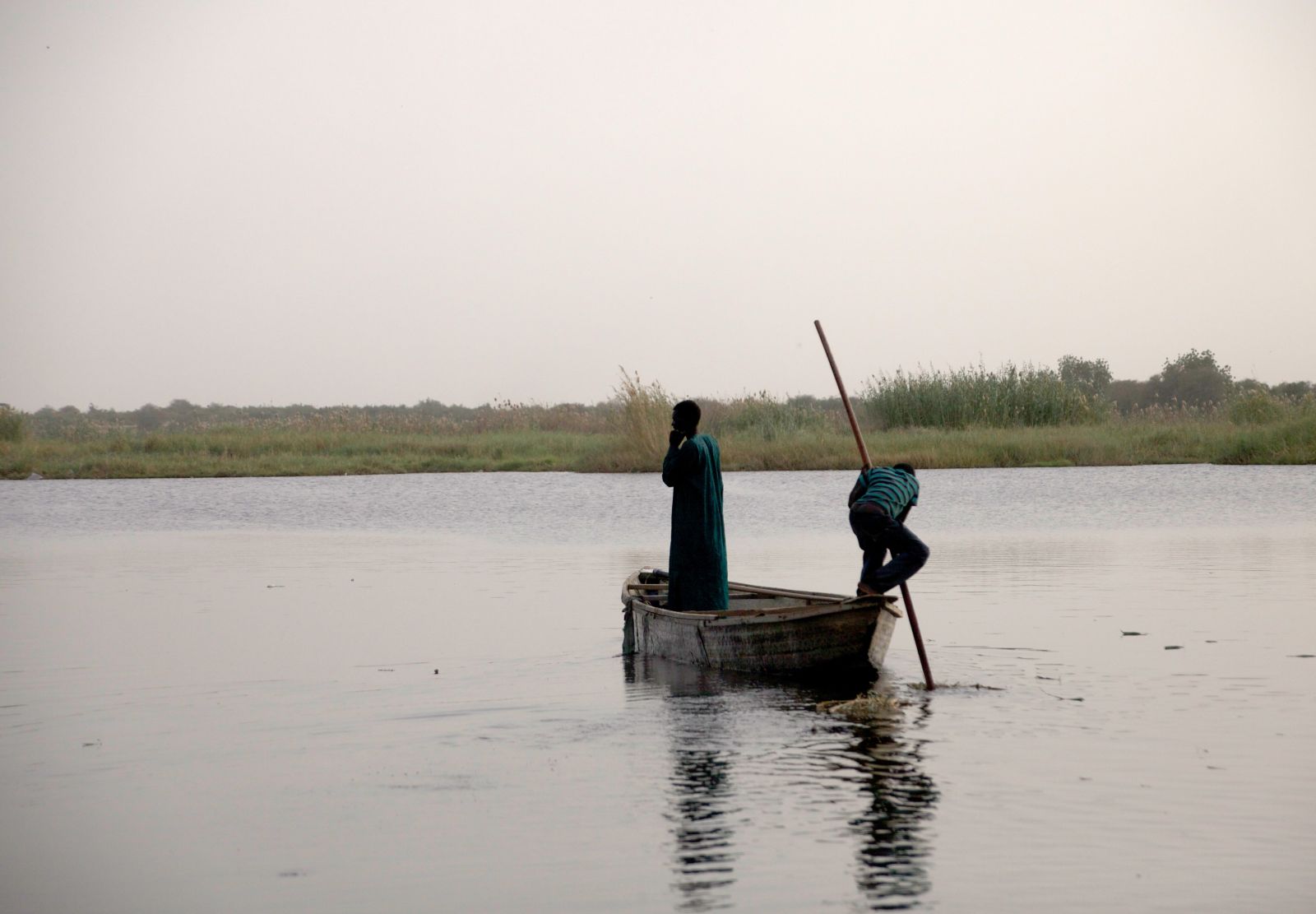Nomadic pastoralism
Herds destroy harvests

Some people need land to cultivate crops; others need it to pasture their animals. Both groups need water. These resources are scarce in Chad, so farmers and migratory herders often clash.
Thousands of animals roam about freely. Every year, they destroy hundreds of hectares of fields shortly before or during the harvest. Off-season crops like manioc, vegetables and fruit are affected as well.
The consequences are severe. Farmers can no longer earn a living from agriculture, and village communities are splintering. Many clashes are violent moreover, and result in serious injuries and even death.
The affected parties, government authorities and representatives of civil society are looking for ways to solve the problem. For example, local authorities and non-governmental organisations have teamed up to form working groups to address and prevent conflicts between farmers and herders. Their exchange of views and experience proved to all involved that farm land is being threatened by migratory herding, which is also called transhumance. The extent of the problem and the difficulty of finding a fair solution became equally clear.
The working groups discovered that several trends exacerbate the tensions:
- The civil and military authorities that are responsible for addressing the conflicts tend to be biased.
- The people who cause the damage, in particular shepherds and the owners of free-ranging animals, normally go unpunished.
- Livestock owners do not respect farmers’ customs and needs.
- The authorities have established transhumance corridors, pastures and planting and seeding times in accordance with the needs of commercial livestock breeders.
- Local authorities are interfering in legal proceedings and blocking peaceful conflict resolution.
- To judge by rumours, the courts have a reputation for corruption and ruling in favour of the party that pays the most.
Escalating disputes
In Logone Occidental in southern Chad, the smallest of the country’s 22 regions, the battle for resources has intensified over the past ten years. Here, resources must be shared by a particularly large number of people: The average population density in Logone Occidental is 93 residents per square kilometre, compared with a national average of 8.7 residents per square kilometre. The most densely-populated areas of Logone Occidental have 150 to 200 residents per square kilometre.
Civil-society organisations identify far-reaching changes that compound the problems in this region. An important aspect is that migratory herders are choosing new routes to get to new land with the best possible watering places and pastures. Other changes include new animal-husbandry methods and changes in herders’ behaviour.
Thanks to abuses of power by government officials and traditional leaders, livestock owners have managed to create short corridors for migratory herding throughout the region. Moreover, herders have begun to settle in villages and around urban centres.
In particular, tensions are being exacerbated by a new group of livestock breeders. The group consists of civil servants and urban traders who invest in herds and employ wage-dependent workers to take care of their animals. These shepherds are typically children or young people. They are extremely brazen, and their employers equip them with guns and mobile phones.
Convening all parties
Along with other civil-society organisations and local authorities, the organisation Ngaoubourandi (“rainbow”) conducted workshops in March in order to promote peaceful coexistence between farmers and herders. Representatives of herders and farmers, government representatives, religious leaders from the region, local-government officials, civil servants and other experts participated in the meetings. They identified a series of urgently-needed measures:
- Informal grazing corridors that were established arbitrarily in violation of regulations must be closed.
- Disputed land allocations that were carried out by traditional and administrative authorities must be reversed.
- The customs of all communities concerned must be respected when land is administered, government regulations are enforced and organisational measures taken.
- Hiring practices must be regulated in order to ensure that only adults are employed as shepherds. Furthermore, owners must hire a sufficient number of shepherds to properly care for the herds in a way that protects crops.
Medium-term measures were also defined. In densely-populated regions like Logone Occidental, current production methods harm the environment and threaten the peace. New methods of managing natural resources must therefore be developed, and new production methods that require less space must be introduced. The goal must be to move on from extensive farming and animal husbandry to more intensive production methods with support from the state.
Land ownership should be formalised according to the principles that the communities in the individual districts already apply. Such a step would make traditional leaders responsible for protecting and preserving traditional ownership. In rural areas, there are no elected bodies that might draft and implement land-use plans that take into account the requirements of agriculture. Moreover, there are no rules for taking decisions regarding collective fallow land, the clearing of land, wildlife conservation, rights of way, boundaries between cultivated land and the protection of individual and collective harvests. By taking on these tasks, traditional leaders can help to prevent conflicts.
Djeralar Miankeol is an agricultural engineer and works for the organisation Ngaoubourandi, which advocates for the rights of the poor in Chad. He is also a member of the Peace Resources Group, an international consortium of peace experts.
djeralar@peaceresources.net
http://www.peaceresources.net/
Update: The author was recently arrested. Amnesty Internation considers this a breach of the freedom of speach and demands that he be set free:
https://www.amnesty.org/en/documents/afr20/1916/2015/en/











